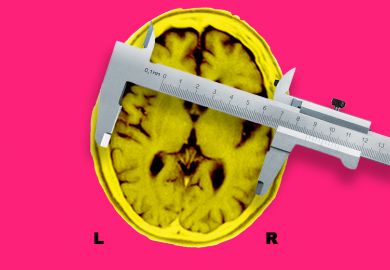In a cost-cutting move, Ontario’s conservative government has ended nearly C$30 million (£18 million) of annual support for scientific development ventures credited with health advances and job creation in the province.
The government of Premier Doug Ford is cutting the C$20 million it spends a year on the Vector Institute for Artificial Intelligence, C$5 million from the Ontario Institute for Regenerative Medicine, and C$4 million from the Canadian Institute for Advanced Research.
The regenerative medicine institute has no other financial support and is seeking alternative sources. The other two have backing from the federal government and other partners but expect operational reductions.
Ontario’s Ministry of Economic Development, Job Creation and Trade blamed the cuts on budget deficits from the previous Liberal government. “In order to protect what matters most and get Ontario back on track, we need to get our fiscal house in order,” the ministry told the Toronto Star.
Numerous university scientists and other experts suggested the government moves will cost it more in the long run. “I think they are telling businesses that they should go elsewhere,” one recipient of funding from regenerative medicine institute, Michael Rudnicki, director of the Ottawa Hospital Research Institute, told the Ottawa Citizen.
One recent analysis commissioned by the province credited the artificial intelligence institute with attracting some of the field’s leading scientists and business leaders and urged the province to stay with it.
Rather than heed the advice, the provincial government ended funding for the entity that wrote it, the Institute for Competitiveness and Prosperity, the Star reported.
The artificial intelligence institute was formed in 2017 by the provincial and federal governments, along with private industry and academic institutions led by the University of Toronto and other universities. It finances research and helps the creation of start-up ventures, in a bid to keep Canadian experts in AI from leaving for the US.
The regenerative medicine institute, created in 2014, is a non-profit organisation specialising in moving scientific discoveries involving stem cells into clinical trials and functional therapies. It too was awaiting an analysis of its effectiveness, but the government acted before waiting for the findings, the Star reported.
The Canadian Institute for Advanced Research, established in 1982, finances work in a variety of fields including brain development, artificial intelligence and societal health. Geoffrey Hinton, a British-born professor of computer science at the University of Toronto and AI expert who also works at Google, told the Star that the institute was the reason he moved to Canada.
The Institute for Competitiveness and Prosperity was founded in 2001 by the Ontario government to study issues related to economic competitiveness and prosperity. It has argued both for lower taxes on business and greater tax benefits for low-income families.
In a message last week announcing its closure because of the funding cut, the institute’s executive director, Jamison Steeve, said that he feared backsliding in progress on education, the environment, and provincial and household debt. “As we exit the stage,” he wrote, “the current state of Ontario’s competitiveness hangs in the balance.”
Register to continue
Why register?
- Registration is free and only takes a moment
- Once registered, you can read 3 articles a month
- Sign up for our newsletter
Subscribe
Or subscribe for unlimited access to:
- Unlimited access to news, views, insights & reviews
- Digital editions
- Digital access to THE’s university and college rankings analysis
Already registered or a current subscriber?








